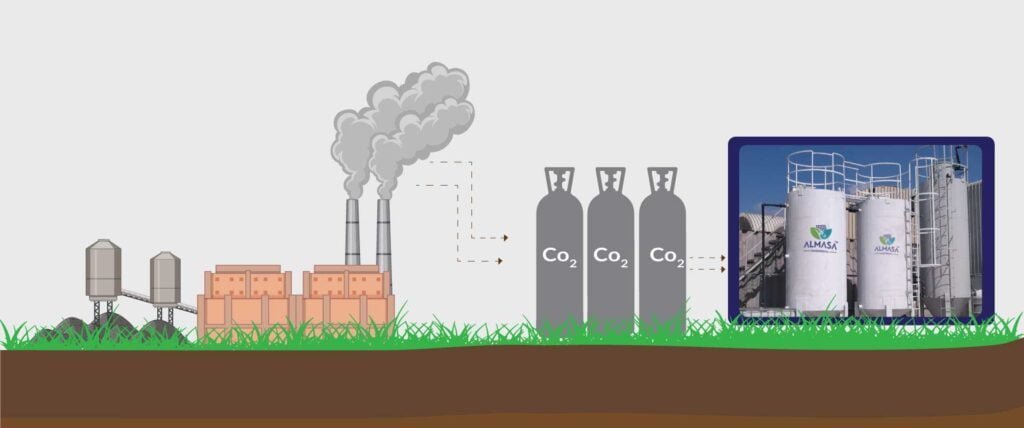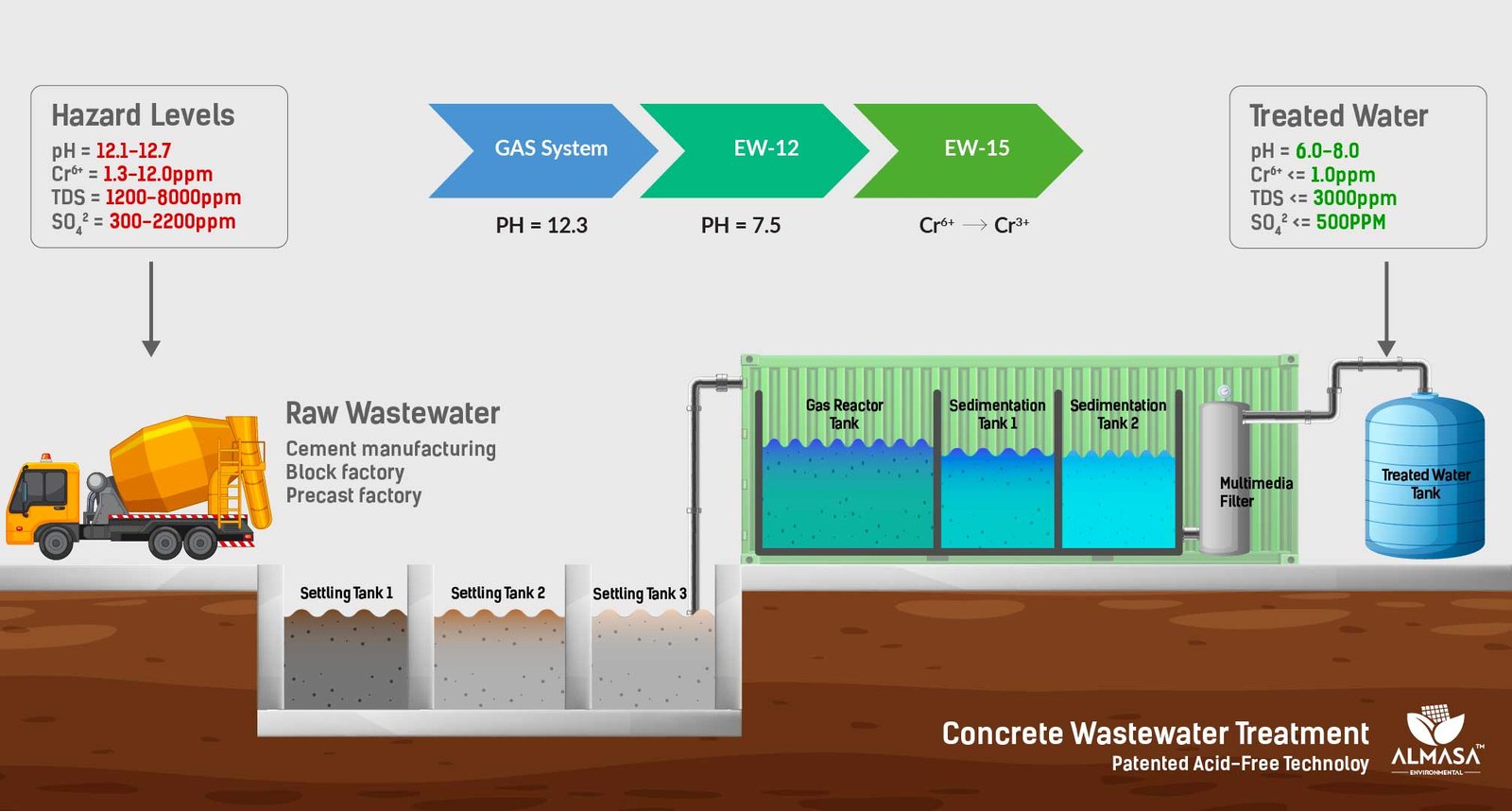Concrete Wastewater Treatment Plant
Acid-Free Patented Technology for Sustainable Concrete Wastewater Treatment
Table of Contents
Alkaline water treatment
Almasa Environmental introduces a revolutionary acid-free, patented technology for treating concrete wastewater, setting a new standard in the industry. This innovative solution effectively reduces the water’s pH to a stable level between 6 and 8, and significantly lowers TDS levels, eliminating the need for additional reverse osmosis (RO) treatment. By avoiding hazardous chemicals and leveraging Carbon Capture, Utilization, and Storage (CCUS) technology, Almasa’s method not only meets UAE and GCC regulations but also offers substantial cost savings, environmental benefits, and ensures the treated water is safe for reuse. Almasa Environmental is committed to innovation and sustainability, proving that wastewater is not wasted until it’s wasted, making concrete wastewater treatment simpler and more eco-friendly.
GCC Patented Acid-Free Technology
Our technology significantly improves concrete wastewater treatment, making it more efficient than traditional methods without using harmful chemicals. This approach is both better for the environment and safer for public health and it is also recognized under a GCC (Gulf Cooperation Council) patent, ensuring it is safeguarded across multiple countries in the GCC.
The inclusion of a patented carbon capture utilization and storage system (CCUS) shows Almasa’s effort to not only clean water but also to reduce pollution, By focusing on both cleaning water and managing carbon, Almasa takes a comprehensive approach to solving environmental problems.
Why Choose Our Concrete Wastewater Treatment plant?
- Acid Free, No Hazardous chemicals
- No Reverse osmosis (RO) Required
- Stable pH Levels at 6.0 - 8.0
- 40 % Low Operation Cost
Hazards of Cement Product Wastewater
The Concrete wastewater produced from cement manufacturing, block factories, and precast factories is characterized not only by its high pH value but also by its contamination with high levels of chromium and Total Dissolved Solids (TDS). These characteristics pose significant environmental and health risks, necessitating careful treatment before discharge or reuse.
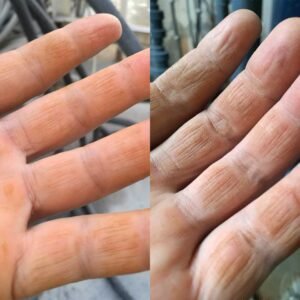
High pH Value
The high pH level of this waste water can be harmful to human skin, leading to dryness, itchiness, and irritation.Moreover, high pH levels can disrupt aquatic ecosystems if discharged untreated into water bodies.
High Chromium Levels
Chromium, especially in its hexavalent form (Cr(VI)), is highly toxic and carcinogenic. It can pose serious health risks to humans and animals, including skin rashes, stomach ulcers, respiratory problems.The presence of high chromium levels in waste water requires specific treatment to reduce its concentration to acceptable levels as per environmental regulations.
High TDS Levels
High TDS levels can indicate a variety of contaminants that may include toxic ions and heavy metals. Water with high TDS levels is not only unsuitable for drinking but can also adversely affect aquatic life and agricultural practices if used for irrigation.
Conventional Treatment Process
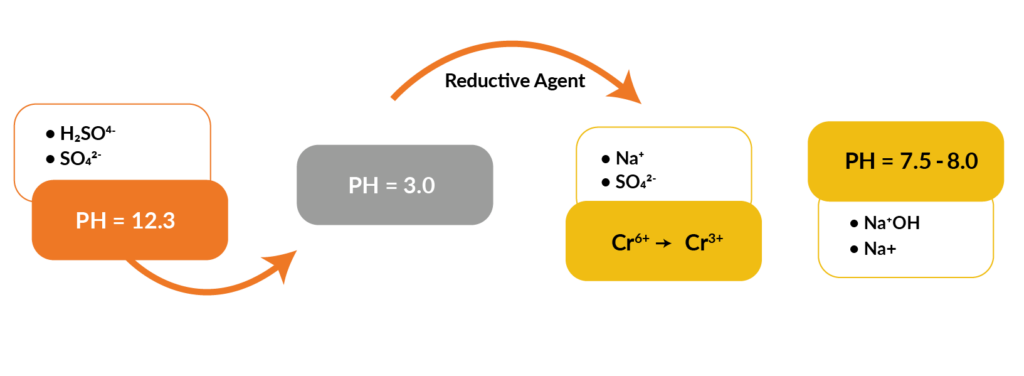
Unlike conventional methods, our technology excels in efficiency, outperforming older treatments by eliminating the need for harmful chemicals. This represents a significant leap forward in environmental sustainability and public health safety. Our patented solution, recognized and protected within the GCC (Gulf Cooperation Council) countries,
- Hazardous Chemical Usage
- Secondary Pollution
- RO Treatment is Mandatory
- High TDS value
Carbon capture utilization and storage (CCUS)
CCUS Technology
Our Acid-Free Concrete Wastewater Treatment that incorporates Carbon Capture, Utilization, and Storage (CCUS) technology. This innovative method revolutionizes the treatment of concrete wastewater by capturing CO2 gas during the process and utilizing it to treat the water, eliminating the need for harmful acid-based chemicals. Almasa’s CCUS technology not only significantly reduces the environmental impact but also enhances water quality and protects ecosystems. This sustainable solution exemplifies Almasa’s commitment to pioneering environmentally friendly technologies in wastewater treatment.
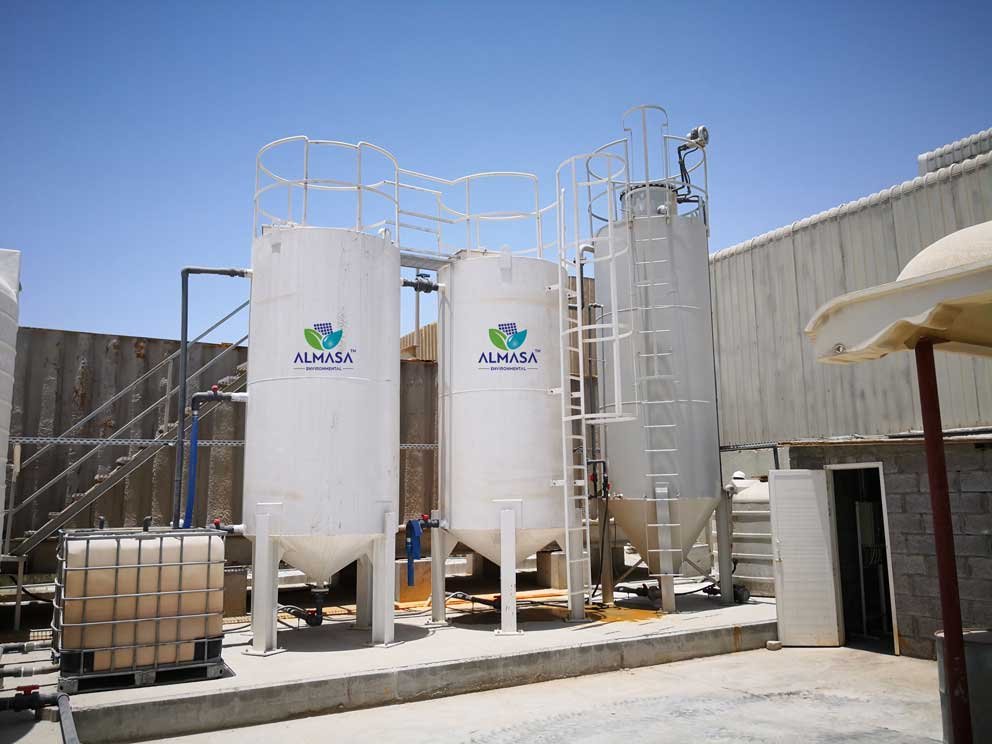
- Significant Reduction of Greenhouse Gas Emissions.
- Repurpose CO2 for Valuable Applications.
- Safe and Long-Term Underground Storage.
- Mitigats Emission in Hard-to- Abate Industries.
